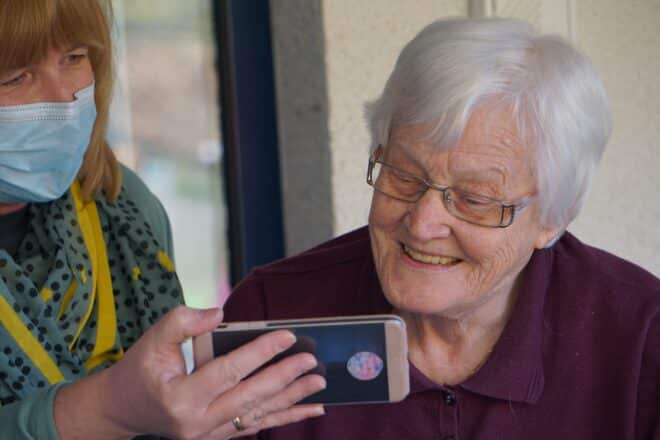Navigating through the complicated process of involving elderly parents in care discussions can be challenging, especially when they are defiant to help. This scenario is a reality for 77% of adult children, as revealed by a study from Penn State University. “Planning for the Future: Strategies for Involving Elderly in Care Discussions” addresses these difficulties, offering comprehensive advice on how to approach such sensitive topic. It stresses the importance of understanding parents’ fears and concerns, often related to the loss of independence or mental health issues like depression and anxiety. The article also fosters the need to acknowledge their abilities, treat them as adults, focus on significant safety issues, and accept when things are out of your control. Additionally, it explores the importance of creating a widened support network, motivating parents to accept help for their children’s wellbeing, and managing personal stress. Most importantly, the piece recognizes the crucial role of elderly involvement in planning their future care, advocating for a sensitive, loving approach to build stronger bonds.
Understanding the Fears and Concerns of the Elderly
Exploring common fears in seniors
Fear and anxiety are often part of the aging process. As adults find themselves facing physical decline, health concerns, and the loss of autonomy, the fear of losing independence can become overwhelming. Also, emotional turmoil such as depression or anxiety can compound these fears. It’s essential to understand these common fears within the context of aging and the unique worldview of your elderly parents.
Strategies for empathizing with elderly parents
Empathizing with your parents requires thought, patience, and practice. Put yourself in their shoes and consider their era, upbringing, and experiences. Listen actively and validate their feelings. This empathetic approach will help build trust, make them feel understood, and promote open dialogue.
Ways to address and alleviate their fears
Conversations with your parents about their fears are hardly ever easy. However, addressing these fears head on can often help alleviate them. Look for opportunities to reassure them, provide rational perspectives, or suggest professional help if needed. Be consistent in your reassurances and show them that they are not alone in their journey.
Evaluating the Current Situation
Assessments of elderly parents’ capabilities
It’s crucial to assess your parent’s current state objectively without making assumptions. Acknowledge the skills they still possess and the activities they can still perform independently. You may need to involve professionals for a comprehensive assessment, including physical, mental, and social capabilities.
Balancing parental independence with necessary care
Balancing the need for care and the desire for independence can often prove a delicate task. Give them autonomy where possible and introduce help subtly in areas where they struggle. Encourage them to be active and independent but ensure that they get the care they need.
Recognizing and acknowledging parents’ strengths
Acknowledge your parents’ strengths and wisdom. Celebrate their achievements and the life skills they have accumulated throughout their lifetime. Show them that age does not negate their value, and their wisdom and life experiences are still essential.

Maintaining Respectful Communication
Importance of treating elderly as adults
Elderly adults need to be treated with the same respect and dignity as anyone else. Avoid infantilizing or patronizing them. Being respectful and addressing them appropriately will reinforce their confidence and sense of dignity.
Avoiding authoritative behavior
While it might seem easier to resort to an authoritative approach to get your parents to accept help, it can often result in more harm than good. Such behavior can lead to conflict and resistance. Instead, use persuasive communication, reasoning, and empathy.
Effective communication techniques with elderly parents
Effective communication techniques with your elderly parents may include active listening, clear and concise language, and maintaining eye contact. Also, it’s essential to choose the right time and place for important discussions. Be patient, empathetic, and practice kindness, even if differing views emerge.
Prioritizing Safety Concerns
Identifying the most important safety-related issues
When it comes to the safety of your elderly parents, identifying the most critical safety-related issues should be your priority. These could range from physical safety concerns like tripping hazards to health-related issues such as medication management or disease prevention.
Approaches to discussing safety without overstepping boundaries
Discussing safety concerns requires tact and respect. Be clear on why the concern is an issue and how it affects them. Acknowledge their views and involve them in finding solutions. Be patient, persistent, and respectful.
Collaboratively creating a safety improvement plan
An effective approach to addressing safety concerns is to co-create a safety improvement plan. Include them in the discussion, ask for their opinions, and respect their wishes. Such a collaborative approach not only empowers your parents but also strengthens their trust in the process.

Managing Uncontrollable Situations
Dealing with situations beyond control
Not all situations are within your control. When dealing with decisions made by your parents that you disagree with or cannot control, it’s essential to respect their autonomy.
Strategies for acceptance of parents’ decisions
Acceptance is a powerful tool. It might be tough to accept certain decisions your parents make, but ultimately, they are adults with the right to make their own decisions. Acceptance doesn’t mean agreement, but it allows for peace and the possible resolution of conflicts.
Reducing stress through acceptance
When you’re unable to control a situation, acceptance can help reduce stress. Instead of getting frustrated or annoyed, accepting the situation can help keep negative emotions at bay and provide peace of mind.
Creating a Robust Support System
Components of an effective support system
An effective support system often involves diverse individuals – from doctors, therapists, neighbors, to religious leaders. They provide different perspectives, resources, and types of support for your parents, facilitating overall wellbeing.
Involvement of doctors, neighbors, and religious leaders
Doctors, neighbors, and religious leaders can provide different forms of support for your parents. Doctors and therapists offer medical advice and mental health support. Neighbors can lend a hand in daily tasks, and religious leaders provide spiritual and emotional support.
Benefits of a diversified support system
A diversified support system offers a comprehensive range of support. With varied resources and viewpoints, your parents are ensured well-rounded care that helps them feel loved, supported, and encouraged.

Negotiating Acceptance of Care
Persuading parents to accept help for their children’s sake
One strategy to persuade your parents to accept help is to present it in a way that will benefit their children. Appealing to their love for their children can often lead to a greater willingness to accept assistance.
Understanding parental altruism
Parental altruism, the innate desire of parents to act for their children’s welfare, can sometimes sway them to accept help. They may wish to spare their children from worry or burden, providing an uplift to accept the needed assistance.
Strategies for negotiation and acceptance
Negotiating acceptance of care involves diplomacy, tact, and patience. Listen to their objections, clarify misconceptions, offer comfort, and back your arguments with valid points. Go slow, respect their perspective, and remember that acceptance is often about compromise.
Strategies for Personal Stress Management
Importance of stress management for caregivers
Managing stress becomes critical when you are the primary caregiver for your elderly parents. Caregiver stress can lead to exhaustion, health issues, or burnout. Recognizing this stress and actively managing it is important for both your health and your ability to care for your parents.
Ways to vent and release negative emotions
Venting to a trusted friend, therapist, or support group helps release pent up emotions. Exercise, leisure activities, meditation, or merely taking time off every now and then can also provide stress relief. Remember, it’s normal to feel what you’re feeling, and it’s essential to find healthy outlets for your emotions.
Finding a balance between caregiving and personal life
Finding a balance between caregiving and your personal life is a key aspect of stress management. Incorporating self-care acts into your routine, delegating responsibilities, and taking breaks are essential. Remember, you can’t pour from an empty cup; taking care of yourself is equally important as taking care of your parents.
Involving the Elderly in Future Care Planning
Benefits of involving elderly in care discussions
Involving your parents in discussions about their future care can serve multiple benefits. It maintains their autonomy, gives them control, and enables them to express their wishes and preferences. It also makes them feel valued, included, and more likely to accept help.
Building motivation for elderly to accept help
Motivating your parents to accept aid might be challenging, but not impossible. Fulfilling their desire to remain independent as long as possible, catering to their comfort, respecting their choices, and reassuring non-abandonment can often build their motivation.
Steps for initiating future care discussions
Initiating future care discussions requires timing, preparation, and patience. Let your parents set the pace, be ready to hear them out, and include them in decision-making. These discussions may occur over months. Remember, the goal is to give them the best care while preserving their dignity and autonomy.
Maintaining a Strong Bond Throughout the Process
Communicating concern effectively
Communicating your concern effectively involves balancing showing concern with respecting their autonomy. Be patient, kind, and forthright. Show your love and concern, ensure they feel valued, and that you genuinely care for their well-being.
Strengthening bonds while discussing sensitive topics
Sensitive discussions can strain relationships. However, they can also be opportunities to strengthen bonds. Show respect and empathy during these discussions, provide reassurance, and emphasize your common goal – their well-being.
Nurturing love and sensitivity amid challenging discussions
Amid challenging discussions, it’s important to foster love, compassion, and sensitivity. Your parents need emotional support as they navigate through the twilight years of their lives. Your understanding, patience, and love will nurture the bond between you and help them steer through the challenging aspects of aging.
